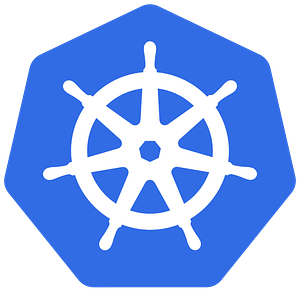Overview
This 3-day hands-on training provides a comprehensive introduction to Kubernetes, from foundational concepts to advanced deployment strategies. Participants will learn how to containerize applications, manage workloads efficiently, and leverage Kubernetes for scalable infrastructure. The course covers Docker fundamentals, Helm, and best practices for securing and optimizing Kubernetes environments.
Day 1 – Foundations of DevOps, Containers & Kubernetes
Module 1: Introduction to DevOps
- What is DevOps, and why does it matter?
- Key DevOps principles (CI/CD, Infrastructure as Code, automation)
- DevOps workflows and Kubernetes in the DevOps ecosystem
Module 2: Docker Refresher
- Understanding Docker containers
- Writing efficient Dockerfiles
- The Docker build process and caching
- Best practices for containerized applications
- Docker registries (Docker Hub, Harbor)
- Introduction to docker-compose
- Hands-on: Building and running a multi-container application
Module 3: Kubernetes Introduction
- What is Kubernetes, and why use it?
- Kubernetes architecture: Control plane, nodes, kubelet, etcd
- Kubernetes objects and YAML basics
- Hands-on: Complete deployment of a sample application with Helm
Day 2 – Kubernetes Deep Dive
Module 4: Understanding Kubernetes Core Concepts
- Namespaces: Organizing Kubernetes environments
- YAML & Kinds: Understanding Kubernetes resource definitions
- Pods: The fundamental Kubernetes workload unit
- Services: Exposing applications inside and outside the cluster
- Multi-container Pods: Init containers & sidecars
- Deployments: Managing application lifecycles
- Rolling updates & rollbacks
Module 5: Managing Kubernetes Workloads
- Resource limits & requests: Managing CPU & memory
- Probes: Liveness, readiness, and startup probes
- ConfigMaps & Secrets: Managing configurations securely
- Networking in Kubernetes: Cluster networking, CNI plugins
- Persistent Volumes (PV) & Persistent Volume Claims (PVC)
- Hands-on: Deploying applications with advanced resource configurations
Day 3 – Helm, Advanced Kubernetes & Security
Module 6: Helm – Kubernetes Package Management
- What is Helm, and why use it?
- Writing and managing Helm charts
- Using Helm templates and values
- Deploying applications with Helm
- Hands-on: Packaging and deploying a custom Helm chart
Module 7: Helm Security – Using SOPS
- Secure management of Helm values
- Introduction to SOPS (Secrets OPerationS) for encrypting values
- Hands-on: Using SOPS to manage Kubernetes secrets securely
Module 8: Advanced Kubernetes (Time Permitting)
- StatefulSets: Managing stateful applications
- Jobs & CronJobs: Running batch and scheduled workloads
- Security & RBAC:
- Role-Based Access Control (RBAC)
- Service accounts and network policies
- Scheduling: Pod scheduling strategies and node affinity
- Hands-on: Configuring RBAC and secure workloads in Kubernetes
Hands-on Labs & Final Project
- Lab 1: Writing and deploying a Dockerized application
- Lab 2: Creating Kubernetes YAML manifests for various resources
- Lab 3: Deploying and managing applications with Helm
- Lab 4: Securing Kubernetes secrets with SOPS
- Final Project: Deploying and managing a production-grade application on Kubernetes
Who is this training for?
- DevOps engineers and system administrators
- Developers deploying applications in Kubernetes
- IT professionals managing cloud-native infrastructure
Prerequisites
- Basic knowledge of Linux command line
- Familiarity with containers and Docker (helpful but not required)
- Some experience with YAML (recommended)
Outcomes
By the end of this training, you will:
✅ Understand Kubernetes architecture and core concepts
✅ Deploy, scale, and manage containerized applications
✅ Use Helm for packaging and managing Kubernetes workloads
✅ Apply best practices for networking, security, and RBAC
✅ Gain hands-on experience with real-world Kubernetes deployments
Price
2 pax: 3000 €, 3 pax: 3600 €, 4 pax: 4060 €, 5 pax: 4390 €, 6 pax: 4620 €, 7 pax: 4770€, 8 pax: 4900 €.
Delivery languages
English or French
Technical environment
- Virtualized infrastructure or cloud environment for labs (access details provided before the course).
- Recommended: Laptop with SSH client and modern browser installed.

